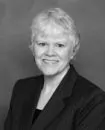Seyfarth Synopsis: The Fair Employment and Housing Council issues regulations to implement California's employment and housing anti-discrimination laws, including the FEHA, the CFRA, and the Unruh and Ralph Civil Rights Acts. The FEHC also conducts inquiries and holds hearings on various civil rights issues. The latest FEHC meeting was held on December 11, 2017. Our own correspondent was there, and files this report of coming regulatory attractions in the areas of age discrimination, religious creed discrimination, and national origin discrimination.
Age Discrimination. The Council discussed the current working draft of 2 C.C.R. § 11076, on age discrimination. The proposed changes would add language defining how to establish a presumption of discrimination by showing disparate treatment of applicants or employees over the age of 40, unless the treatment was tied to a legitimate overriding business necessity, necessary to the safe and efficient operation of the business. An employer would have to show a legitimate overriding business necessity, as opposed to the current "legitimate business reason" for any disparate treatment. The proposed regulations further note: "the mere preference of retaining lower paid workers alone is insufficient to negate a presumption of discrimination."
This language has not yet been adopted and members of the Council seemed amenable to re-working the language for clarity. The Council members also decided that more research about other jurisdictions' approaches to regulating workplace age discrimination would be good. This draft is likely to benefit from further revision.
Religious Creed Discrimination. As to a new potential draft of regulations related to religious creed discrimination, the Council heard concerns about pre-employment religious inquiries, such as religious scheduling needs. One commenter suggested that the religious accommodation process be drafted to mirror the interactive process used in disability discussions, suggesting that employers ask prospective employees whether they could perform the essential job functions, with or without a religious accommodation.
The Council did not seem particularly interested in this type of language. Some voiced concerns with the timing of such requests, and whether they might have the deleterious effect of actually weeding out potential employees by flagging them as "religious." Stay tuned for more comment and revision to these proposed regs.
National Origin Discrimination. As to the final version of new national origin discrimination regulations, notable public comments concerned a section addressing language usage in the workplace. Some commenters feared that a per se ban on language restrictions in the workplace, unless justified by business necessity, could raise safety concerns. For example, during an emergency, employees speaking only in a foreign language on their meal break could present a safety problem if all employees could not understand what was going on. The Council did not seem entirely persuaded by the commenter's arguments, but the discussion did prompt recognition that overly restrictive language regulation may present problems.
Instead of adopting or approving the regulations as proposed, a contested vote among Council members ensued. Two members voted to adopt the regulation as is, while the rest voted for a renewed notice period and another round of public comments. Overall, there was some lingering hesitation on how this new regulation may affect employers.
Regs Re: Criminal History, the California Family Rights Act, and the New Parent Leave Act. Modifications considered by the FEHC included changing the gender pronouns to be gender neutral, and changing language to reflect the exact language of the CFRA and the NPLA. The council voted to move and adopt these proposed amendments for a public comment period, catapulting them towards final adoption.
Other Happenings
Gender Neutral Signage. The Council also discussed emergency regulations already in place regarding gender-neutral facility signage. A subcommittee had already met with Cal/OSHA to discuss regulatory language to harmonize the regulations under the occupational safety laws, the FEHA, and the new legislation regarding gender neutral bathrooms for single occupancy restrooms. The Council is working with Cal/OSHA to ensure consistency and enforcement.
These new proposed regulations follow hard on the heels of regulations promulgated effective July 1, 2017, concerning Transgender Identity and Expression, and Consideration of Criminal History in Employment Decisions.
We will keep you apprised of further FEHC activity on the new proposals. The next FEHC meeting is scheduled for April 4, 2018. For advice on how these regulations may affect your business, or if you would like to discuss how you can participate with us in making public comments, please reach out to your favorite Seyfarth attorney.
The content of this article is intended to provide a general guide to the subject matter. Specialist advice should be sought about your specific circumstances.



